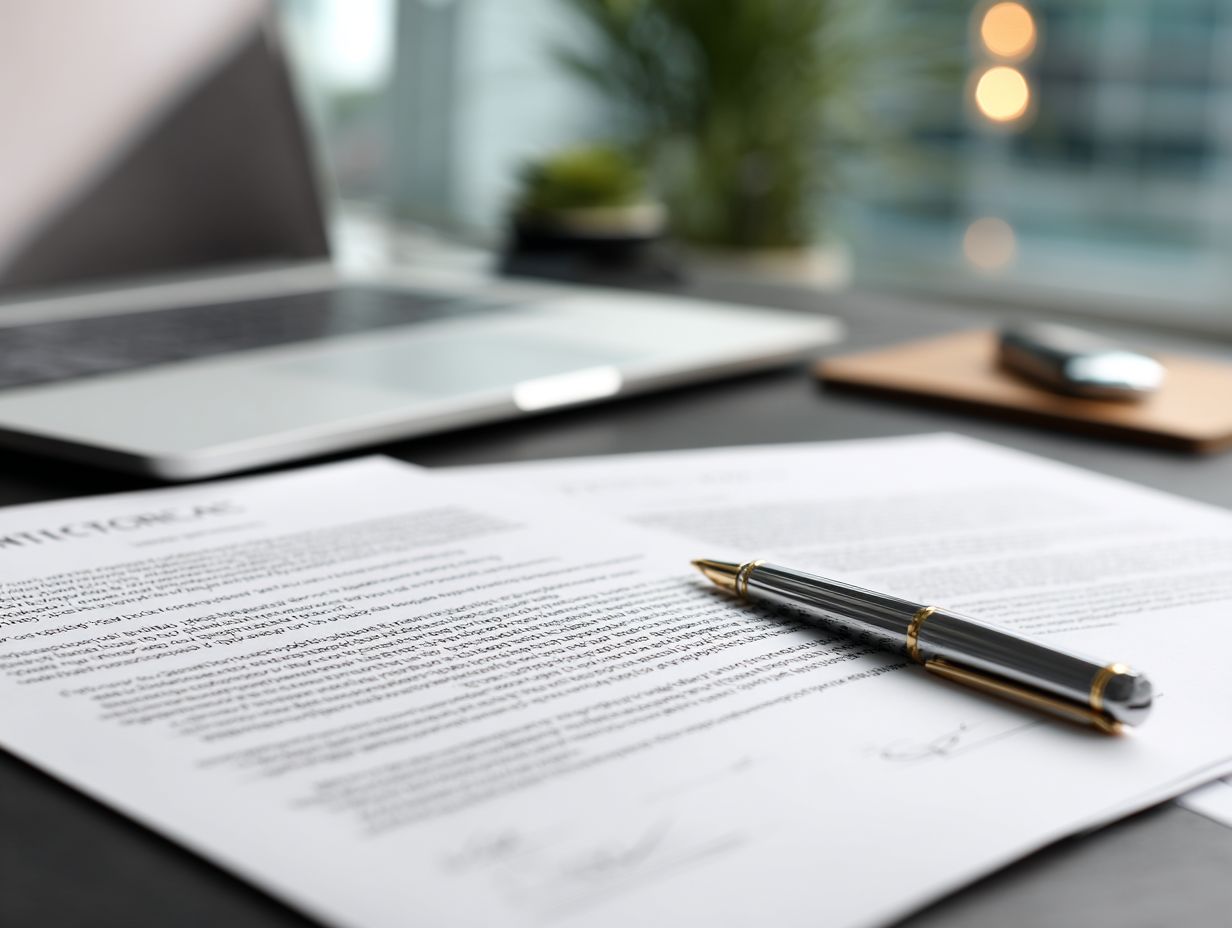Hiring the wrong lawyer could cost your business more than just money, it could lead to delayed deals, compliance mistakes, or even lawsuits.
If you’re setting up or running a business in Dubai, having the right legal partner is not a luxury, it’s a necessity.
The UAE’s legal environment is complex, and your choice of legal counsel can determine how smoothly you navigate business challenges.
In this blog, we’ll walk you through the most important things to consider when choosing lawyers in Dubai for your business. Whether you’re a startup founder, SME owner, or foreign investor, these tips will help you make a confident and informed decision.
1. Understand Your Business’s Legal Needs First
Before you even start searching for lawyers, clarify what kind of legal support your business requires. Are you drafting shareholder agreements? Navigating free zone licensing? Dealing with employment disputes? The scope of legal needs can vary drastically depending on your business model, industry, and growth stage.
For example, a tech startup may need IP protection and regulatory compliance. A trading company might require help with customs law and contract enforcement. Identifying these needs up front ensures you choose a lawyer with the right experience and qualifications — and not just someone who claims to “do everything.”
2. Look for Specialized Legal Lawyers in Dubai
Not all lawyers are created equal. Some specialize in real estate, others in family law — and some are experts in corporate and commercial matters. To get the best results, seek legal lawyers in Dubai with proven expertise in your specific area of need.
For business clients, this usually includes corporate structuring, commercial contracts, tax advisory, licensing, and dispute resolution. Ask the lawyer if they’ve handled cases similar to yours and whether they understand the nuances of local regulations, including free zone laws, DIFC courts, and mainland policies.
Choosing a specialized legal partner ensures not just compliance — but also long-term strategic support.
3. Verify Licenses and Legal Qualifications
Always ensure that the lawyer or law firm you’re working with is fully licensed to practice law in Dubai. Lawyers must be registered with the Dubai Legal Affairs Department (DLAD) or be licensed within free zones like DIFC Courts.
If you’re dealing with cross-border transactions, also check whether the lawyer has qualifications or partnerships in other jurisdictions. The ability to handle bilingual (Arabic/English) legal documents is another major advantage, especially in official court submissions or government dealings.
Never hesitate to ask for credentials or proof of bar registration — reputable lawyers will appreciate your diligence.
4. Prioritize Reputation and Track Record
The best good lawyers in Dubai are known not just for their qualifications, but for their track record. Check online reviews, look for case studies or testimonials on their website, and ask around in business circles.
Reputation matters in Dubai’s tight-knit business ecosystem. A lawyer with a solid name often has better relationships with regulators, knows how to negotiate in local contexts, and is trusted by other professionals.
If possible, ask the lawyer about businesses they’ve previously worked with. A good track record gives you confidence that they know how to navigate the system — and can represent your interests effectively.
5. Evaluate Communication and Responsiveness
Clear and timely communication is essential in any legal matter — and even more so in business. If a lawyer takes days to respond to your email or doesn’t answer your questions clearly, it’s a red flag.
During your first consultation, evaluate how the lawyer explains complex legal issues. Do they break things down in a way that makes sense? Are they patient with your questions? Legal language can be intimidating, but your lawyer should make it feel manageable.
Also consider availability. If you’re growing a business in real time, you want a lawyer who’s responsive when deals move quickly or emergencies arise.
6. Ask About Fee Structures Upfront
Legal fees can vary widely in the UAE, so clarity from the beginning is key. Ask how the lawyer charges: flat fee, hourly rate, monthly retainer, or success-based?
For startups or SMEs, finding affordable lawyers in Dubai is often a priority — but remember that cheaper isn’t always better. What matters more is transparency. A good lawyer will outline expected costs clearly, explain what’s included, and give you realistic timelines.
Avoid firms that are vague about fees or pile on hidden charges later. The best legal advisors are upfront and fair.
7. Consider Regional Reach: Dubai, Abu Dhabi & Beyond
If your business operates across emirates or in mainland and free zones, choose a legal partner who has regional capabilities. Working with experienced corporate lawyers in Abu Dhabi and Dubai under one firm can help streamline your legal strategy and ensure consistency.
This is especially important for companies registered in multiple jurisdictions — for instance, a Dubai-based parent company with an Abu Dhabi branch. Unified legal counsel reduces the risk of conflicting legal interpretations or duplicated work.
Ask whether the firm has a team that can handle cross-emirate matters, or if they partner with other firms for national coverage.
Why Choose Ayesha Aljaziri Lawyers & Legal Consultants?
At Ayesha Aljaziri Lawyers & Legal Consultants, we understand that businesses don’t just need legal answers — they need legal partners. We offer specialized corporate and commercial law services to help startups, SMEs, and international businesses thrive in Dubai and across the UAE.
Our team of bilingual, locally licensed lawyers provides responsive, strategic, and cost-effective legal solutions. Whether you’re forming a new company, navigating a contract dispute, or seeking long-term advisory support, we deliver clarity, confidence, and results. For business legal support tailored to your needs, contact Ayesha Aljaziri Lawyers & Legal Consultants at +971 5594 83605 or email info@aljaziriadvocates.com.
Frequently Asked Questions
What’s the difference between legal lawyers in Dubai and legal consultants?
Legal lawyers in Dubai are registered and licensed to practice law, represent clients in court, and provide official legal opinions. Legal consultants, on the other hand, can offer advice but are not authorized to appear in UAE courts. If you need legal representation or contract enforcement, always choose a fully licensed lawyer.
How can I find affordable lawyers in Dubai without compromising quality?
Start by defining your legal needs clearly and then approach multiple firms for consultations. Ask about their pricing model and request a detailed quote. Many firms — including those with excellent reputations — offer flexible packages for startups and SMEs. Check client testimonials and focus on value, not just price.
Do lawyers in Abu Dhabi follow the same laws as those in Dubai?
Yes and no. Both emirates operate under federal UAE law, but local enforcement and procedural systems can vary. Lawyers in Abu Dhabi may be more familiar with DED (Department of Economic Development) procedures and local court requirements, while Dubai lawyers know RERA or DIFC rules better. For cross-emirate work, a lawyer experienced in both is ideal.
What kind of legal support does a startup business need in the UAE?
Startups need help with company formation, shareholder agreements, licensing, employment contracts, and sometimes IP protection. As the business grows, you may also need advice on financing, vendor contracts, and compliance. A lawyer experienced with startups will guide you through each phase while protecting your legal and financial interests.
Is it better to hire an independent lawyer or go through a full-service law firm?
It depends on your needs. Independent lawyers may offer personalized service and lower costs, but full-service law firms provide broader resources, in-house specialists, and continuity. If your business is scaling or has complex legal needs, a full-service firm can offer more strategic long-term support.








